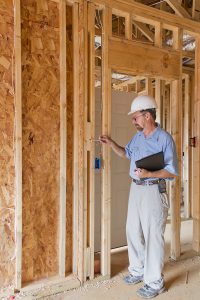How Code Failure Can Lead To Injuries
 Michael Babboni
Premises Liability
Commercial and residential properties in Florida must adhere to a set of building codes that ensure the facilities are safe for all who enter, or live on, the premises. When codes are violated, it can cost more than just a few dollars to fix the problem. When code violations cause injury, or worse, to another party, it can cost much more.
Michael Babboni
Premises Liability
Commercial and residential properties in Florida must adhere to a set of building codes that ensure the facilities are safe for all who enter, or live on, the premises. When codes are violated, it can cost more than just a few dollars to fix the problem. When code violations cause injury, or worse, to another party, it can cost much more.The Building Codes
The International Building Code (IBC) standards are followed by most property managers today. The codes ensure that building construction and maintenance stays safe for anyone who enters the property. Throughout the different jurisdictions in the state of Florida, separate departments are set up with inspectors who go out and inspect buildings on a regular basis. The inspectors rely on the code books that are used throughout the state. These codes are a matter of public record and can be found in the town hall, records building, or your city planning department.
Inspections And Violations
When a code inspector checks a building, they make sure that all structures and areas on the premises comply with all of the codes that are applicable. Any areas that do not comply with building codes will be red flagged and the property owner will then receive a warning or a citation that requires them to fix or repair the problem within a certain time period. Most property owners take heed and repair the situation, but some do not. Once a code inspector has issued a violation, the owner comes under a whole new level of liability.
Common Code Violations
Sometimes, building code violations are brought to the attention of code inspectors when tenants and visitors complain about something they saw while on the property. The common problems reported include:
• No handicapped access
• Handrails that are broken or missing
• Staircases that are broken
• Ceilings that are crumbling or leaking
• Fire code violations
• Missing or non-working smoke detectors
• Any conditions that can be deemed dangerous
Though some of these issues might seem like a mild annoyance, some can cause serious injury or a fatality. A missing handrail can cause someone with balance issues to fall down a staircase, and a leaking ceiling can short out the electricity and cause a fire.
After The Injury
A slip, a fall, or an accident that causes personal injury can happen anywhere, but when it happens as a result of someone else’s negligence, it becomes personal. If you sustained an injury due to an issue that was a direct violation of a safety code, you might be entitled to compensation to cover your medical bills and other personal needs.
Your first step is to take photos of the area and the conditions that caused your injury. It is important that you do this as soon as you can after the injury occurs as the property owner will likely fix the problem quickly once there has been an accident.
Next, if the injury was in a residential area, speak with other people who live in or frequent the property and take statements. Witnesses are important in liability cases.
Finally, contact your local code inspector and report the incident. Ask them to meet you at the scene so you can show the physical evidence of the dangerous property. If a citation had not already been issued, it likely will be issued now.
Follow up with local courts and the building code department to track the violation. If a court conviction occurs, it can go a long way towards assisting in settlement negations for personal injury claims down the road. You have a right to be covered for the pain that someone else has caused, especially if they knew better but did nothing about it in the first place.
